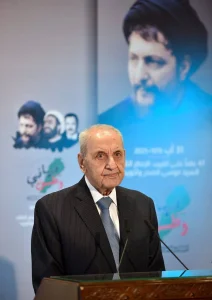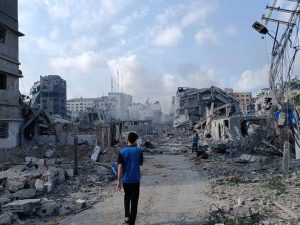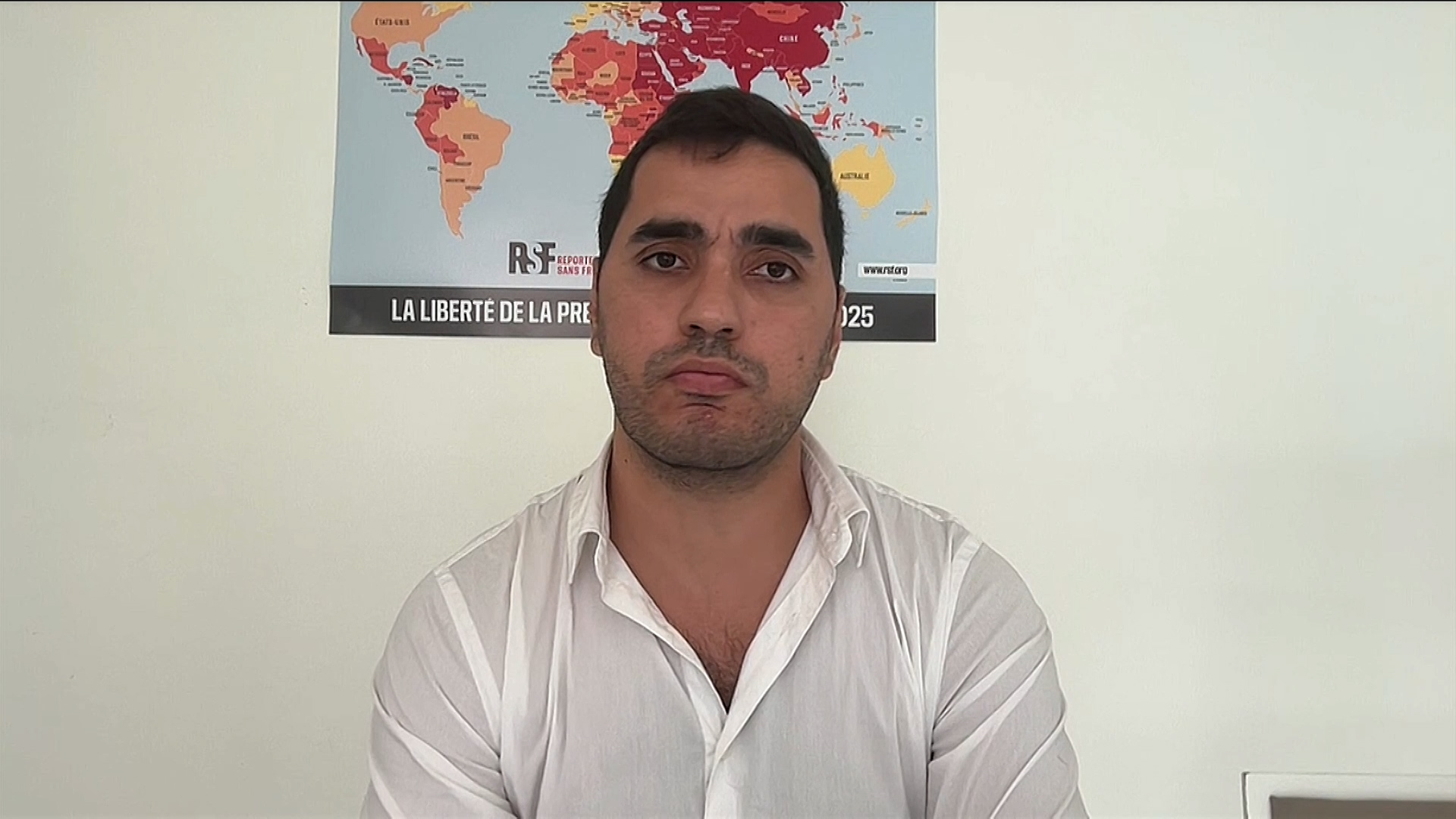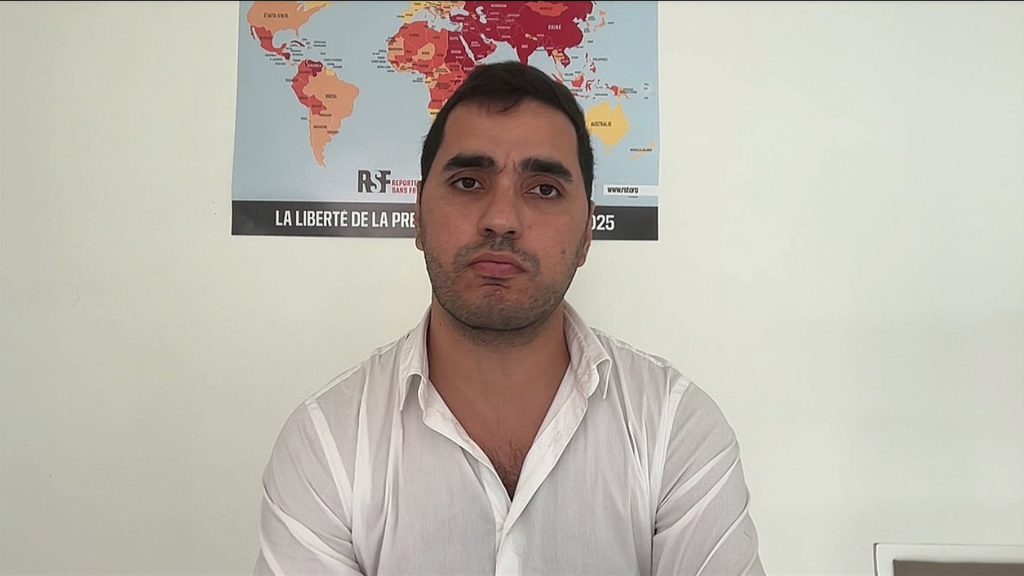Jonathan Dagger, directeur du bureau Moyen-Orient de Reporters sans frontières, a confirmé que les “crimes israéliens continus” visant les journalistes dans la bande de Gaza s’aggravent en raison d’une politique d’impunité.
Les statistiques disponibles auprès de l’organisation révèlent que plus de 110 journalistes ont été tués par l’armée israélienne à Gaza depuis octobre 2023.
Dans ce contexte, l’organisation a lancé une vaste campagne internationale impliquant plus de 250 médias dans 50 pays, visant à exercer une forte pression sur les forces israéliennes pour qu’elles cessent la ciblage systématique des journalistes palestiniens.
Cette initiative représente la dernière étape d’efforts longs pour mobiliser l’opinion publique internationale contre ce que Dagger a décrit comme le “black-out médiatique” imposé à la bande.
En détaillant les objectifs de cette campagne ambitieuse, le responsable régional a souligné que les principales demandes portent sur la protection des journalistes à Gaza et la fin de la politique d’impunité qui facilite la poursuite de ces crimes.
De plus, la campagne demande l’ouverture de Gaza à la presse mondiale et arabe pour permettre une couverture libre des événements.
Outre ces demandes principales, Dagger a révélé une demande humanitaire supplémentaire concernant la nécessité pour les pays d’accueillir les journalistes qui doivent quitter la bande assiégée, que ce soit pour recevoir des soins médicaux ou poursuivre leur travail journalistique. Il a souligné que les journalistes à Gaza sont complètement piégés et ne peuvent ni sortir ni entrer.
Sur une voie juridique parallèle, le responsable de l’organisation a expliqué que les efforts de documentation ont commencé dès les premiers jours de la guerre et se poursuivent de manière systématique.
Dans le cadre de ces efforts, l’organisation a déposé quatre plaintes officielles auprès de la Cour pénale internationale, demandant justice pour les journalistes tombés dans la bande.
Grâce à ce travail, l’organisation a réussi à collecter des preuves documentées et concluantes concernant environ 56 journalistes, confirmant une ciblage direct et délibéré des professionnels des médias pendant l’exercice de leurs fonctions.
Pour illustrer la gravité de ce schéma, Dagger a évoqué l’attaque du 25 du mois dernier qui a délibérément visé cinq journalistes dans le complexe hospitalier Nasser, dont le journaliste d’Al Jazeera Mohamed Salama et ses collègues de Reuters et d’autres médias occidentaux.
Il a également évoqué une attaque similaire survenue le 10 août, où l’armée israélienne a ciblé six journalistes d’Al Jazeera, dont le correspondant Anas Al-Sharif et ses collègues. Ces incidents répétés confirment un schéma systématique et délibéré de ciblage des journalistes.
Sur la base de ces preuves concluantes, le responsable régional a défini les mécanismes de pression futurs, affirmant que la campagne vise principalement à exprimer la solidarité des médias mondiaux avec les journalistes palestiniens.
En même temps, elle vise à réfuter la propagande israélienne qui tente de ternir la réputation de ces journalistes, que Dagger a noté avoir “échoué et n’a pas réussi” à atteindre ses objectifs.
En ce qui concerne l’action juridique internationale, l’organisation utilise divers outils de pression, appelant les membres du Conseil de sécurité de l’ONU à appliquer les résolutions onusiennes protégeant explicitement les journalistes dans les zones de conflit.
À cet égard, Dagger a souligné que les journalistes sont considérés comme des civils selon le droit international, ce qui fait de leur ciblage un crime de guerre selon toutes les mesures juridiques.
Le directeur régional a confirmé que la pression se poursuivra sans relâche par tous les moyens disponibles, qu’ils soient juridiques, médiatiques ou diplomatiques, jusqu’à ce que ces massacres en cours depuis deux ans contre les journalistes dans la bande de Gaza cessent enfin.














Recommended for you
مدينة المعارض تنجز نحو 80% من استعداداتها لانطلاق معرض دمشق الدولي
طالب الرفاعى يؤرخ لتراث الفن الكويتى فى "دوخى.. تقاسيم الصَبا"
تقديم طلبات القبول الموحد الثلاثاء و640 طالبا سيتم قبولهم في الطب
البريد المصري: لدينا أكثر من 10 ملايين عميل في حساب التوفير.. ونوفر عوائد يومية وشهرية وسنوية
سمو الشيخ عيسى بن سلمان بن حمد آل خليفة يستقبل سفير الولايات المتحدة الأمريكية لدى مملكة البحرين
الجغبير: القطاع الصناعي يقود النمو الاقتصادي